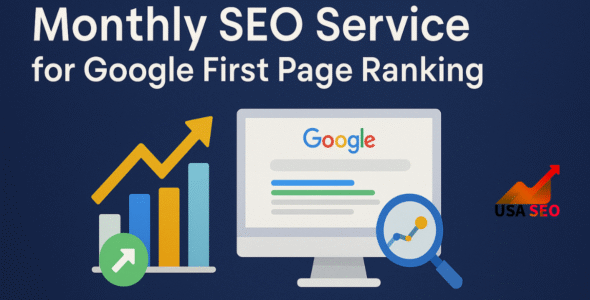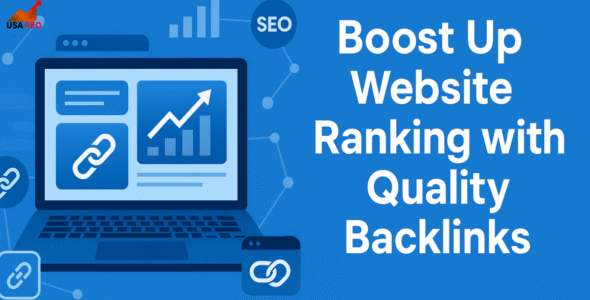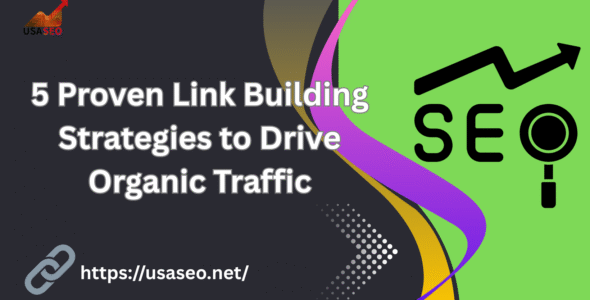Harnessing the power of search engines demands smart choices between SEO and Google Ads. SEO focuses on improving your website to boost organic exposure and attract unpaid visitors over time. Google Ads, on the other hand, delivers rapid exposure via sponsored adverts on search engine results pages. Both tactics have different merits and may be used together to optimize online presence and reach. SEO or Google ads which is better? Here are some major factors in the contrast between SEO and Google Ads in leveraging the power of search:
Strategy and Approach
SEO focuses on organic growth, while Google Ads offers immediate, targeted paid visibility. SEO comprises a thorough and long-term strategy to optimize your website and its content to boost organic exposure. It involves keyword research, on-page optimization, link building, and technological upgrades to increase search ranks over time. The goal is to create relevant content that aligns with user queries, driving organic traffic and building trust. And on the other side, the approach for Ads is more quick and focused. It includes developing ad campaigns and bidding on keywords to show adverts on search engine results pages and associated websites.
The method emphasizes on addressing targeted consumers based on demographics, interests, and geographic regions. Google Ads offers rapid visibility, precise targeting, and control over ad placements and budgets for quick results. Both tactics have their merits and may be used in combination to optimize the power of search. SEO builds long-term organic growth and authority, while Ads provides quick exposure and targeted demographics. Combining both strategies creates a balanced and effective search marketing plan.

Cost Considerations
Cost is crucial when choosing between SEO and Google Ads, as it aligns with your business goals and budget. SEO, while offering long-term benefits, often requires a higher initial investment in terms of time and resources. To see significant results, businesses must invest in high-quality content creation, website optimization, and acquiring backlinks. Additionally, ongoing maintenance and monitoring are necessary to ensure the site remains competitive in search rankings. Once a good position is achieved, maintaining organic traffic is generally more cost-effective than running continuous ad campaigns. Over time, SEO offers a higher return on investment (ROI) due to its ability to generate free, organic traffic.
On the other hand, Ads provides immediate visibility but requires a continuous budget allocation. With pay-per-click, costs can quickly accumulate, especially in competitive industries. The cost-per-click (CPC) varies depending on factors such as keyword competition, industry, and targeting parameters. Ads on Google offers faster traffic but can be less sustainable without consistent funding due to ongoing costs.
SEO is a cost-effective long-term strategy, while Ads provides quick results but can become expensive if not managed carefully. Balancing both strategies can optimize cost efficiency while achieving both immediate and sustained visibility.
Timeframe and Results
SEO is a long-term strategy, taking months to show results as it builds authority and improves rankings. Google Ads offers immediate visibility and quick results, perfect for businesses needing fast exposure, but requires ongoing optimization.
It’s vital to examine your objectives, timeframe, and resources when deciding between SEO or Google Ads. If you have a longer-term vision and can engage in continual optimization efforts, SEO may bring durable and enduring effects. If you need instant exposure or want to test keywords and ad copy, Ads provides quick results. SEO builds long-term success, while Ads on Google provides rapid exposure and targeted traffic, creating a balanced strategy. Ultimately, the duration and outcomes rely on your individual circumstances and aspirations. It’s crucial to match your strategy with your objectives and pick the technique that best fits your demands.

Targeting and Control
When choosing between Google Ads and SEO, targeting and control are key considerations. SEO aims to optimize your website’s content, structure, and technical elements to improve its visibility in search results. Although you have some influence over targeting, you may optimize your website for certain keywords. SEO focuses on attracting users through organic search, though site traffic depends on search intent, algorithms, and competition. SEO targets a broad audience but offers less control over the specific demographics visiting your website.
However, Ads on Google provides far greater control and accuracy. You may target your audience using Google Ads by using demographics, geography, certain keywords, and even user interests and behaviors. This enables you to customize your marketing efforts to target the most relevant individuals who are actively looking for your goods or services. You may also pick whether your advertisements show up on search engine result pages or in the Google Display Network thanks to Google advertisements’ control over ad placements. Additionally, you can choose when to run your advertisements to make sure your target audience is most likely to interact.
To help you keep within your intended advertising budget, Google also provides budget control features that allow you to establish daily or monthly expenditure limits. All things considered, Ads on Ads on Google offers a lot more control and targeting ability than SEO, enabling companies to concentrate their efforts on delivering customized message to a particular audience.
Credibility and Trust
Credibility and trust are essential elements for any business, particularly in the realm of digital marketing, where consumers are increasingly cautious about where they spend their money and time. In the context of SEO, credibility is built over time through high-quality content, consistent online presence, and earning backlinks from reputable websites. When search engines see your website as an authority on certain topics, it boosts your ranking, which in turn increases trust among users. As your website ranks higher in search results, users are more likely to trust your brand, seeing it as a credible source of information or services. Moreover, having a secure, user-friendly site further enhances credibility by ensuring that visitors have a smooth, safe browsing experience.
On the other hand, Google Ads can also foster trust, but in a different way. Ads that appear in relevant search results are often perceived as trustworthy, particularly when they lead to a well-designed, professional landing page. However, trust in paid ads can be more transient, as users are more likely to trust organic search results over paid ones. To overcome this, Google Ads should be used alongside other trust-building practices, such as showcasing customer testimonials, including trust seals, and ensuring a seamless user experience on your site.
Ultimately, both SEO and Google Ads can contribute to building credibility and trust, but SEO’s long-term, organic results tend to create a stronger, more sustainable trust relationship with customers, fostering loyalty and repeated business.

Synergy and Combined Approach
A coordinated strategy combining SEO and Google Ads enhances visibility and results. SEO focuses on long-term organic growth by improving rankings and building trust through content optimization and backlinks. Google Ads provides immediate visibility through paid ads, allowing precise targeting of keywords, demographics, and regions. Together, they drive both organic and targeted traffic, maximizing exposure and effectiveness.
When paired, SEO and Google Ads may boost each other’s performance. Here’s how the synergy between the two tactics might be advantageous:
- Increased exposure: SEO boosts organic rankings, while Google Ads provides additional visibility through paid ads, ensuring your website appears in both organic and sponsored search results.
- Keyword insights: Google Ads gives significant statistics on the success of keywords, including click-through rates and conversion rates. This data may be utilized to influence your SEO strategy, helping you uncover high-performing keywords and improve your website appropriately.
- Testing and optimization: Google Ads enables testing of ad copy, landing pages, and targeting. Insights from these tests can refine organic content and website structure, improving user experience and performance.
- Increased website traffic: While SEO may take months to develop momentum, Google Ads may deliver an instant increase in website traffic, maintaining a consistent flow of visitors while your organic results improve.
- Enhanced brand exposure: The combined presence in both organic and sponsored portions of search results boosts your brand’s visibility and credibility, leading to higher brand awareness and trust among users.
Coordinating SEO and Google Ads ensures consistency in branding and messaging. By aligning keywords, content, and user experience, businesses can create a seamless online presence. A combined strategy leverages the strengths of both approaches, maximizing exposure, targeting the right traffic, and driving better results in the competitive digital landscape.
Conclusion
In conclusion, both SEO and Google Ads are useful tools for leveraging the power of search. While SEO focuses on long-term organic development and reputation, Google Ads gives rapid exposure via paid advertising. Combining the qualities of both tactics helps optimize online presence, reach, and outcomes. By utilizing SEO’s long-term advantages with Ads on Google quick exposure, companies may obtain higher visibility, tailored traffic, and enhanced results in the competitive digital marketplace.
 My Account
My Account 


